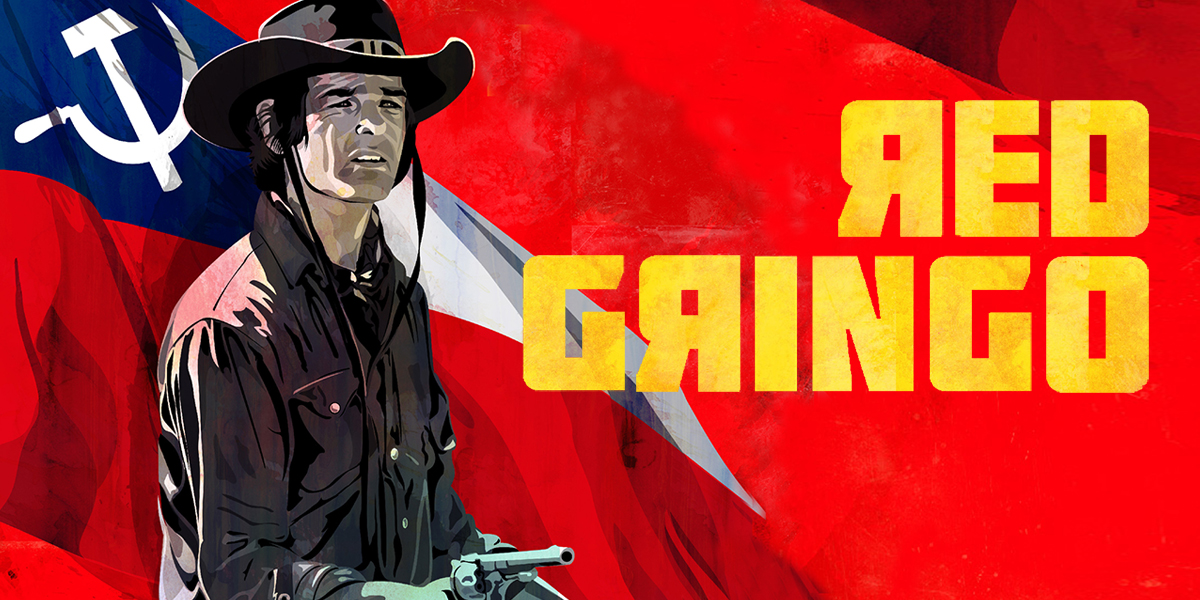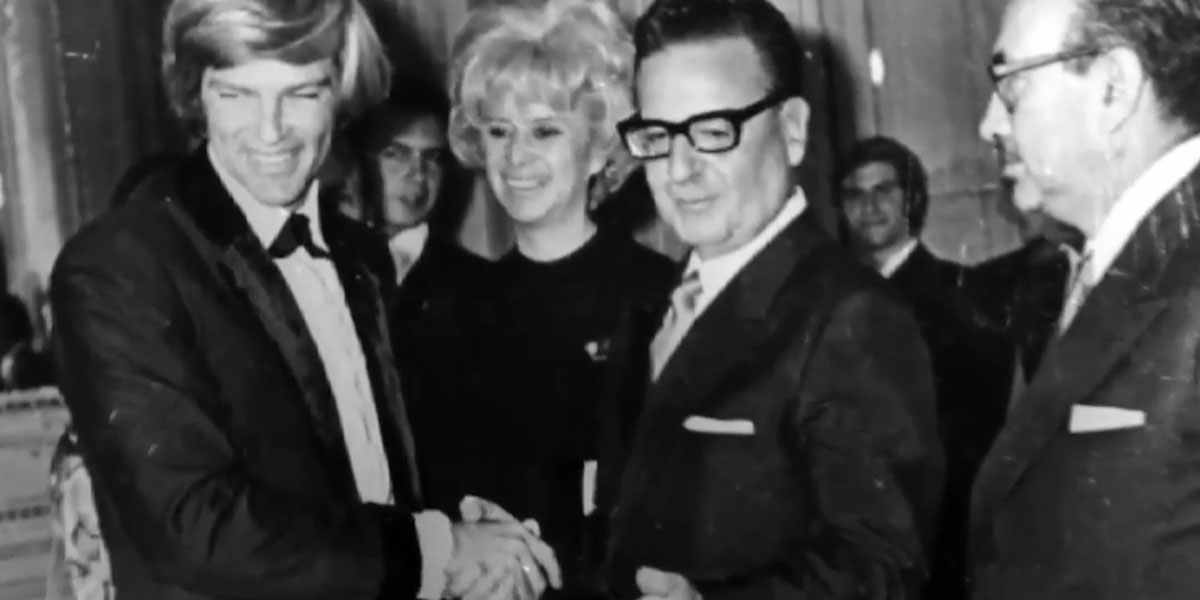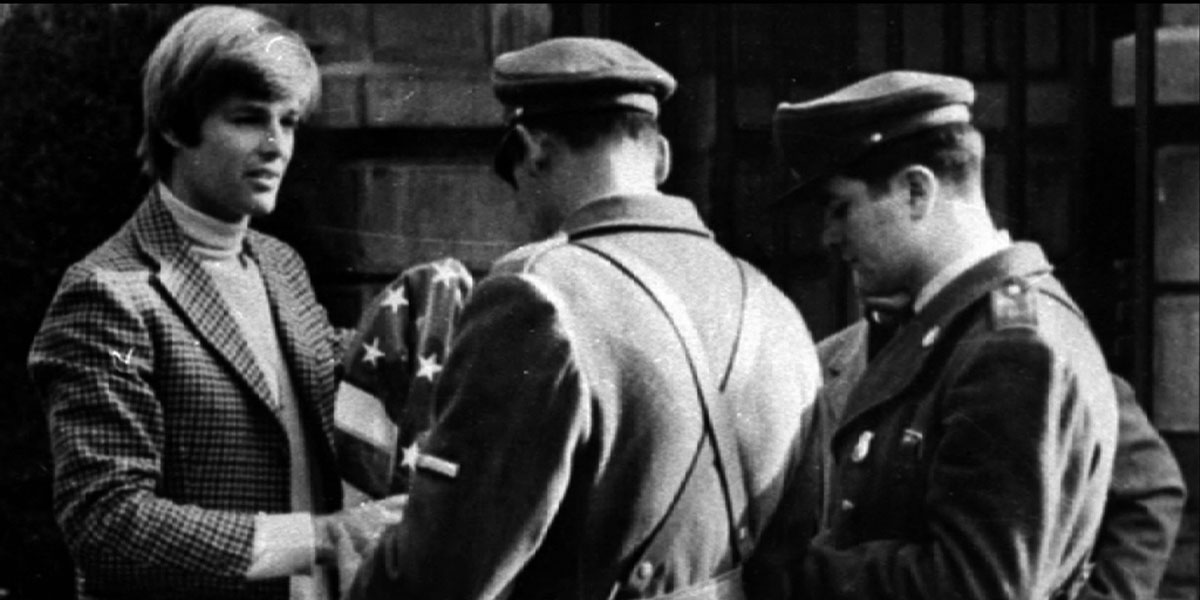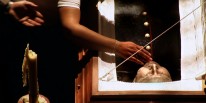Red Gringo
(Gringo Rojo)
Miguel Angel Vidaurre / Chile / 2016 / 68 min





Seattle International Film Festival
Ibero American CompetitionValladolid International Film Festival
Pricing
Related Films
 Bastard. The Legacy of Pinochet’s Genocide(Bastardo. La herencia de un genocida)Pepe RovanoAt 35, director Navarrete Rovano, who had grown up fatherless and labeled a “bastard,” discovered his father was Colonel Rodrigo Retamal, a ...
Bastard. The Legacy of Pinochet’s Genocide(Bastardo. La herencia de un genocida)Pepe RovanoAt 35, director Navarrete Rovano, who had grown up fatherless and labeled a “bastard,” discovered his father was Colonel Rodrigo Retamal, a ... Adriana’s Pact(El pacto de Adriana)Lissette OrozcoWhen I was a girl, I had a strong role model in my life: my aunt Adriana. In 2007, she was detained, and I found out she worked as an agent at DINA ...
Adriana’s Pact(El pacto de Adriana)Lissette OrozcoWhen I was a girl, I had a strong role model in my life: my aunt Adriana. In 2007, she was detained, and I found out she worked as an agent at DINA ... Machuca(Machuca)Andrés WoodACADEMY AWARD® CHILE’S SUBMISSION FOR BEST FOREIGN LANGUAGE FILM SECTION MODERN CLASSICS The story takes place in Santiago in 1973 in the days ...
Machuca(Machuca)Andrés WoodACADEMY AWARD® CHILE’S SUBMISSION FOR BEST FOREIGN LANGUAGE FILM SECTION MODERN CLASSICS The story takes place in Santiago in 1973 in the days ... The Death of Pinochet(La Muerte de Pinochet)Bettina Perut & Iván OsnovikoffOn December 10, 2006, General Pinochet died unexpectedly in Santiago’s Military Hospital. For 24 hours, his death reawakened the political divisions ...
The Death of Pinochet(La Muerte de Pinochet)Bettina Perut & Iván OsnovikoffOn December 10, 2006, General Pinochet died unexpectedly in Santiago’s Military Hospital. For 24 hours, his death reawakened the political divisions ... Zurita, You Will See not to See(Zurita, Verás no Ver)Alejandra Carmona CannobbioNational Literature Award Laureate Raúl Zurita is one of Latin America’s most celebrated and controversial living poets. He is not only a great poet ...
Zurita, You Will See not to See(Zurita, Verás no Ver)Alejandra Carmona CannobbioNational Literature Award Laureate Raúl Zurita is one of Latin America’s most celebrated and controversial living poets. He is not only a great poet ...Synopsis
In Spanish with English subtitles
Reminiscent of Searching for Sugarman, director Miguel Ángel Vidaurre’s self-described “pop memory exercise” follows North American singer Dean Reed’s surprising and unlikely political transformation after learning of the brutality and repression of U.S.-supported regimes in South America.
Born in Lakewood, Colorado, Reed attempted to conquer the American music industry with his voice and charisma. His songs found modest success in the U.S. but became massive hits in Latin America. In 1962, with hopes of cashing in on his international popularity, Reed tours South America, where he undergoes a political awakening that earned him the nickname “The Red Elvis.” After being forced into exile, Reed settled in East Germany where he continued his career until his mysterious death in 1986.
Making magnificent use of never seen old photographs, interviews, concert footage, and other unpublished material, Red Gringo sheds light on what was really happening in Latin America during the Cold War.
Related Subjects
About the Director
He has taught at several universities, specializing in the contemporary cinema aesthetics, until he was finally appointed Academic Director of the Chilean School of Cinema. In 2008 he started developing a Degree program in documentary filmmaking at the Universidad Academia de Humanismo Cristiano. He has been de Director of the program since 2010.
Vidaurre made three films oriented to the experimentation around the fantastic genre: Corazón Secreto, Oscuro/Iluminado and Limbus. In 2012, he released his first documentary, Marker72 on the visit of the documentary filmmaker Chris Marker to Chile in 1927. He is currently in the investigation stages for the documentary series The Children of the Fürher, which explores the Nazi presence in Chile.
Press
“*** A fascinating tribute to an idiosyncratic artist, this is recommended.” – P. Hall, VIDEOLIBRARIAN
“Red Gringo recounts Reed’s transformation from teen idol to political activist, crosscutting among a jumbled mélange of concert footage, newsreel clips, and interviews.” – Dave Segal, THE STRANGER
“It is a document that every Chilean should see.” – Joblar, CANDILEJAS
“Vidaurre turns almost exclusively to the wealth of archival material surrounding his subject to tell this story...The result is a fascinating look back at one of the United States’ most peculiar 20th century pop phenomena.” – Andrew S. Vargas, REMEZCLA
“Using old photos, interviews, and previously unreleased footage, [Vidaurre] constructs a story of this unlikely radical whose left-wing philosophy earned him the nickname “Red Gringo.” Not only does Vidaurre delve into Reed’s unusual life, he also captures the brutality, oppression, and poverty of his homeland during the Cold War.” – Janice Headley, KEXP
“A novel work that manages to maintain itself in the outskirts of any radical judgement of the history of our country and doesn't loose sight of this unknown singer for many contemporaries, but places him as one of the many small heroes that dare to raise his voice, without being a direct part of the issue. Recommended. ” – Wladimyr Valdivia, El otro cine
Notes on the Film
Red Gringo is a bio-political portrait of the political transformations of North American singer Dean Reed during the decades of the ’60s and ’70s in Latin America. At the same time, it becomes a pop-political manifest, where it is made clear that the participation of the pop culture and its figures is paramount for the political transformations.
This is a documentary about pop music and culture, an enthusiastic and ludic work that seeks a different point of view for the Chilean Project of the Popular Unity from a perspective of cultural production linked to the massive media of artistic expression.